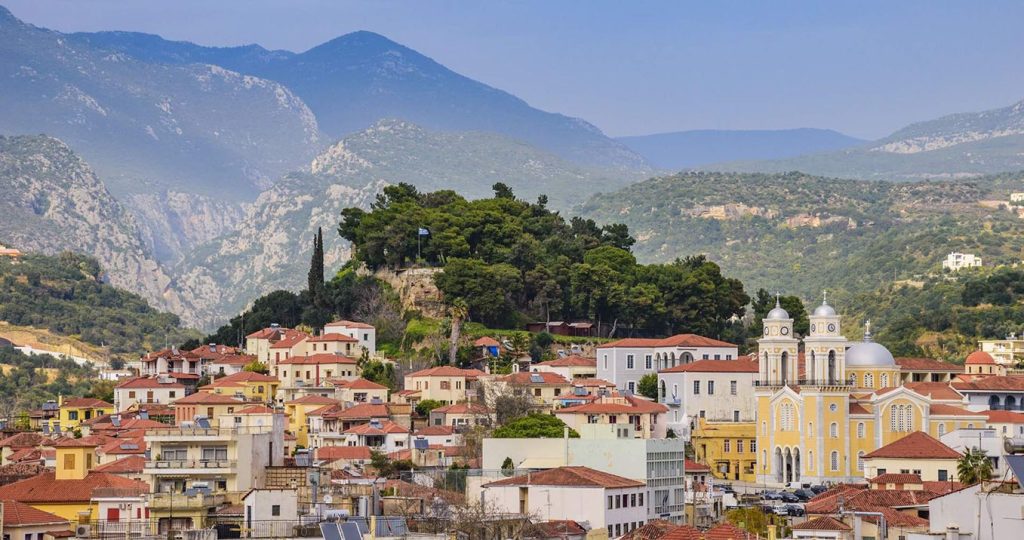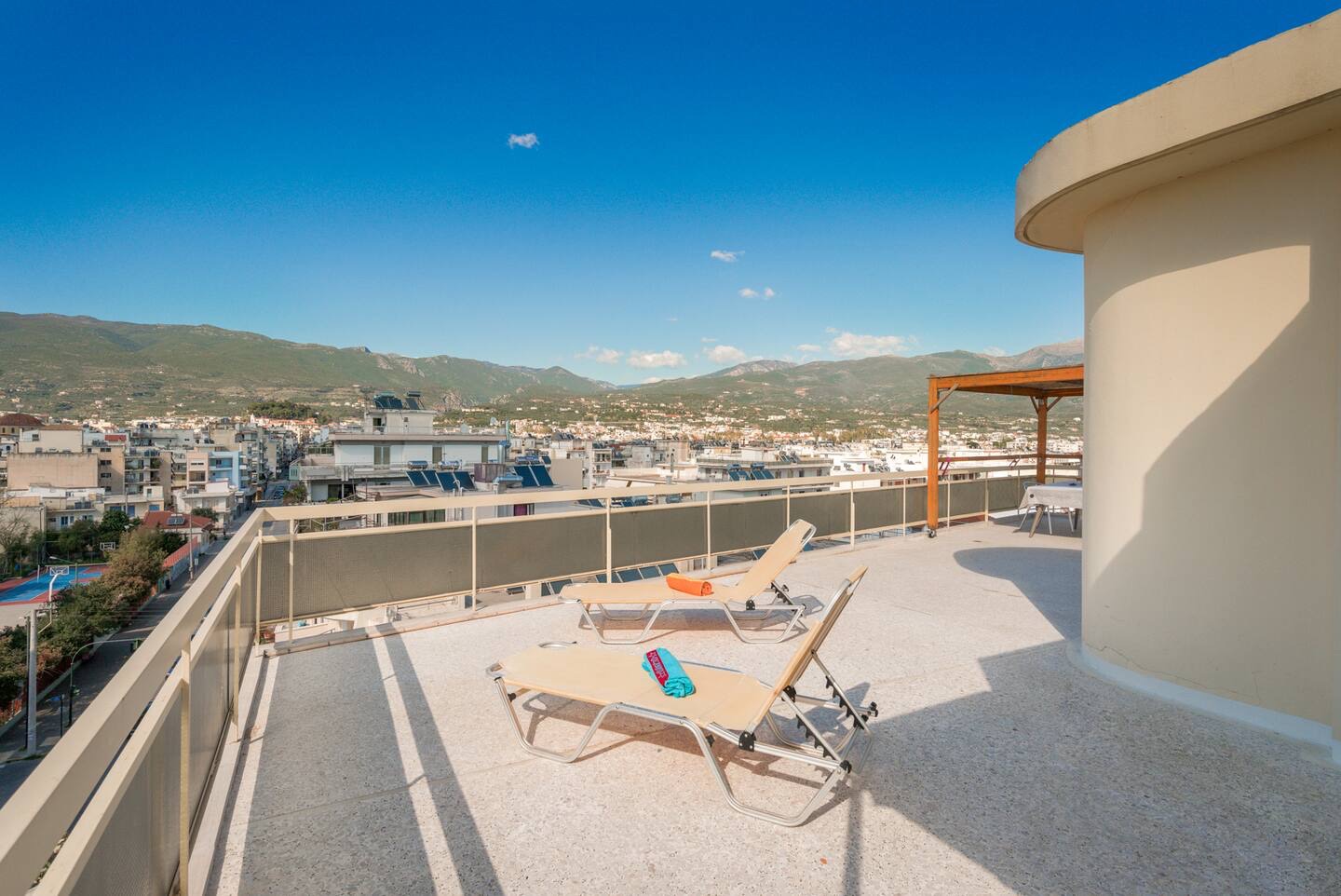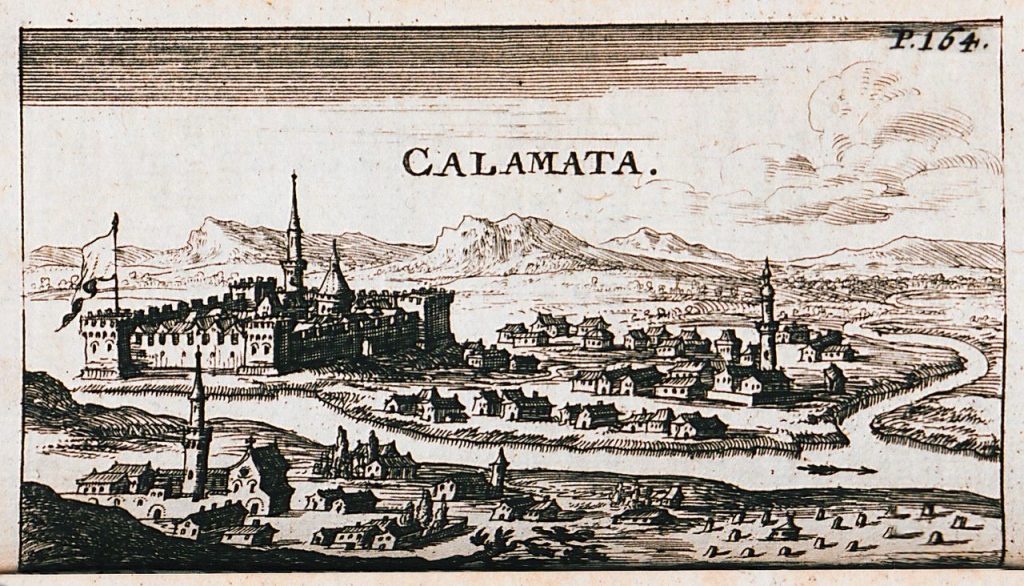
1. Kalamata
Several months ago, in the icy grip of an English winter, tired of layering up and tucking my Raynaud’s deadened fingers into thick mittens just to step outside, I decided to come back to Greece, where I am right now. I’d no idea back then that we’d have had such a glorious spring but, booked and paid for, I set off with a spring in my step, although just a little bit anxious.
The man who owns the apartment I’ve rented, Nico, usually very quick to respond, had gone quiet over the last few days and, on arriving in Kalamata, having phoned him several times on the numerous numbers he has, there was no dialling tone on some and no answer on the others. Thoughts of the scams you read about, the ones that would never happen to you because you’re smart, started to swirl around in my head.
As the sun beat down on me and my luggage, standing on the harbour with nowhere to go, I made for a café, had a coffee and watched a group of people buying fish from a boat, my glass still half full but beginning to drain as I weighed up my options. After about 40 minutes I’d persuaded myself that, scammed or not, it wasn’t a bad place to be and I’d have to make the most of it, then my phone pinged. It was a message from Nico and my spirits lifted but dropped as I read: “This is to inform you that there was a water damage in the apartment and although it will be clean by your arrival, it most probably won’t be ready regarding the water damage. I will need a bit more time to find a solution. I will know more by tomorrow. You can come but I will still need to do some work in the apartment”. Perhaps this explained the silence of the last few days.
The good/bad news at least meant that I hadn’t been scammed, but I couldn’t come to the apartment for several hours and Nico would message me later in the day. With 2 hours sleep the previous night, hot and luggage laden, I then spent several grim hours longing for the call that eventually came, and it all came right in the end.
Far from the scammer I’d imagined, although deep down I’d thought there must surely be another explanation, Nico is in fact a very nice man, and the apartment’s a delight, apart from initially having a bit of a watery pong, which open windows overnight seems to be clearing. It’s not quite the Greek idyl of the white walls and blue shuttered windows you see in holiday brochures. It’s actually on top of a block of flats with 360-degree views of the mountains, the Ionian sea’s Gulf of Messenia and, just down the road, there’s the port and a one and a half mile stretch of gently sloping, golden sand. I have sole use of an area the size of a tennis court occupying the entire roof space of the six-storey block and, for a month, I’m paying less than the price of a one-week package holiday in a Kalamata hotel, which I wouldn’t fancy anyway.

Scam concerns abated, there’s still something about which I’m slightly worried, which is that Greece is one of the most earthquake-prone countries in Europe, averaging around 25,000 a year. Most are small and felt minimally but larger ones do occur, and Kalamata was hit by a whopper in 1986. It registered 6.2 on the Richter Scale, took the lives of twenty-four people and many of the city’s buildings were damaged or destroyed. The neighbouring village of Eleohore was completely flattened and subsequently abandoned by most of its inhabitants. But in the years since much of the city’s been rebuilt to better standards than the buildings that crumbled 39 years ago, so I’m hoping that mine’s one of them. It’s a long way down but I think the odds are in my favour.
A strong earthquake (5.8 on the Richter scale) shook parts of Greece and Turkey in the early hours of yesterday. According to the European Mediterranean Seismological Centre (EMSC), it struck at around 2.00am, leading to 69 injuries and one death.
Kalamata’s a bustling and vibrant city in the Greek Peloponnese about 150 miles south-west of Athens, famous for its large, dark purple olives, exported all over the world for centuries. The picture at the top of this post shows the old town and the castle with the Taygetos Mountains in the background. According to the European Environment Agency it’s the greenest city in the country with over 50% of it covered by trees; the average across the EU is 30%.
The city’s history reaches back as far as Homer, a poet thought to have lived sometime between the 8th and 7th centuries BCE, although nobody’s sure, and not be confused with Homer J Simpson, the overweight, beer swilling nuclear safety inspector created by Matt Groening. The earlier Homer, the poet, wrote of Pharae, an ancient city built where Kalamata’s castle stands today.
Fast forward 3,000 years and we get to the War of Independence (1821), when Greece’s 400-year occupation by the Turks came to an end, with Kalamata the first major town to be liberated. Then, thanks to cultivation of the fertile Messinian lands all around here, where olive oil, raisins and figs were grown, as they are today, Kalamata developed into a wealthy urban centre and significant port.
There’s lots to do in and around the city, including in the wider Peloponnese, so I’m hoping there are adventures to be had, and better ones than on day one. Things are looking up!
